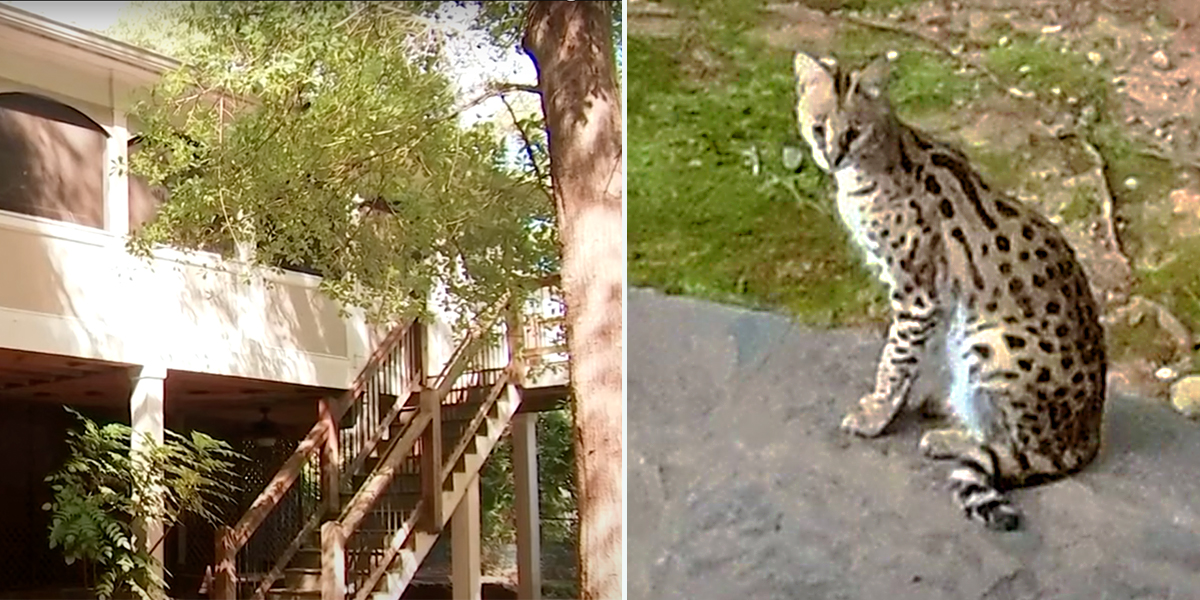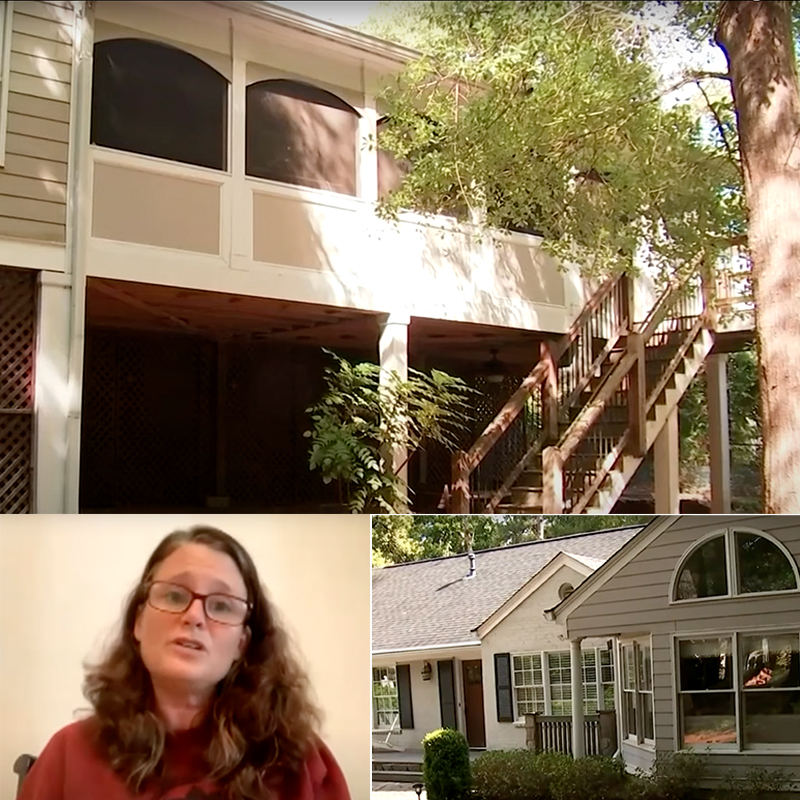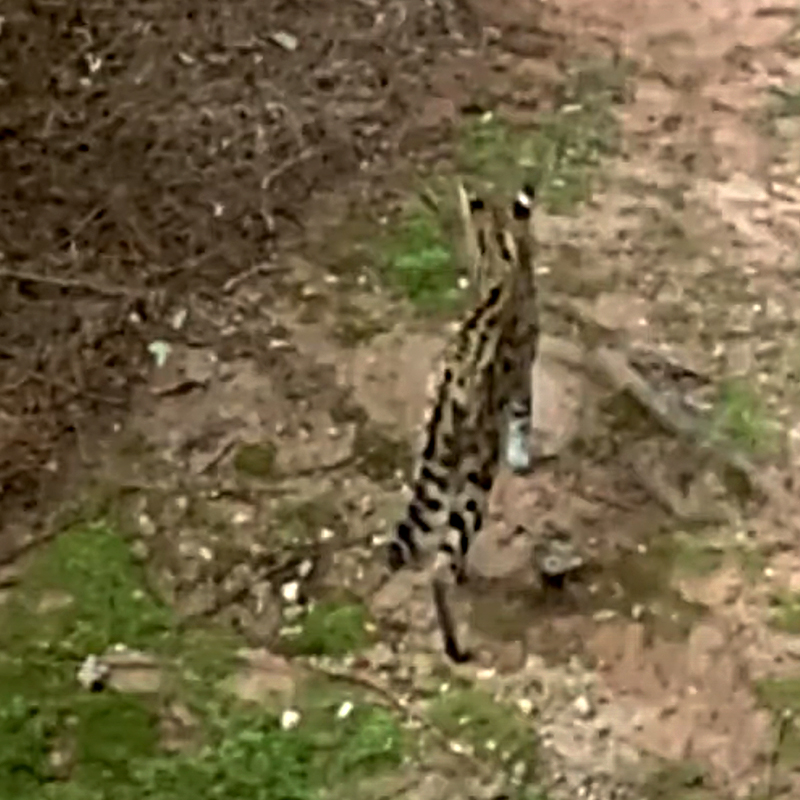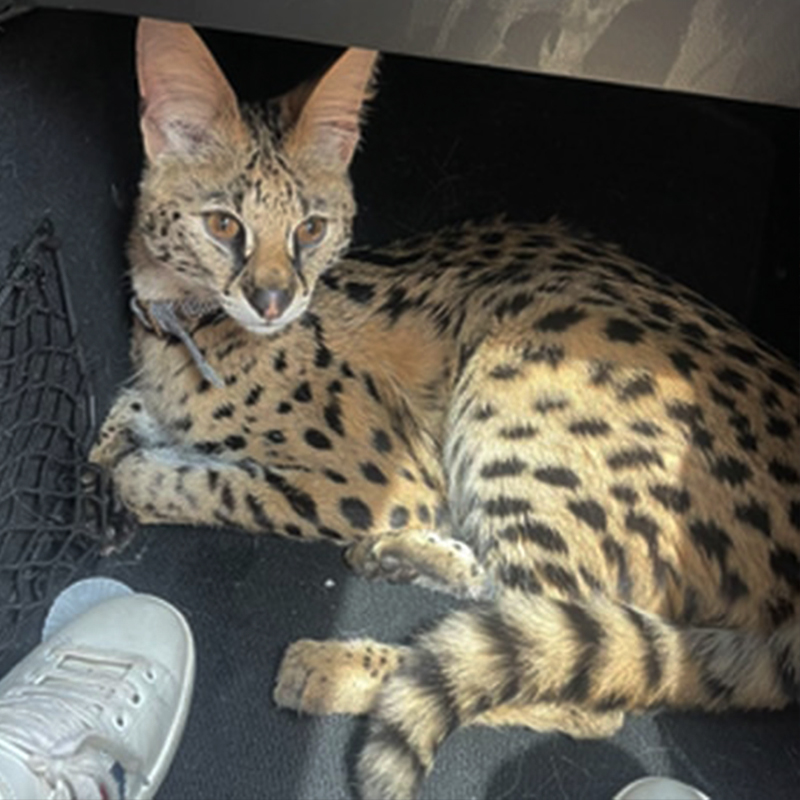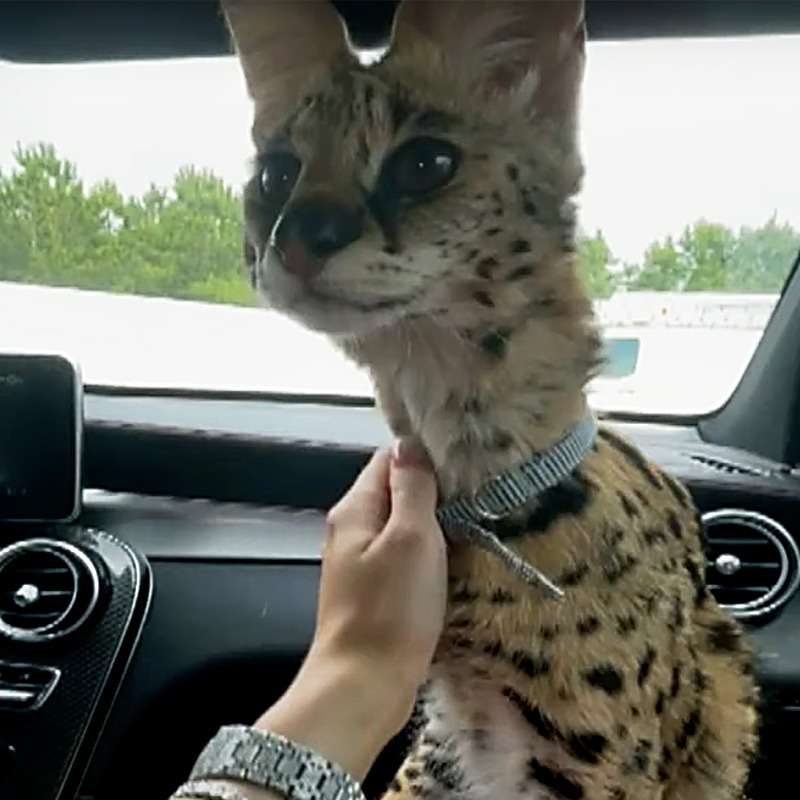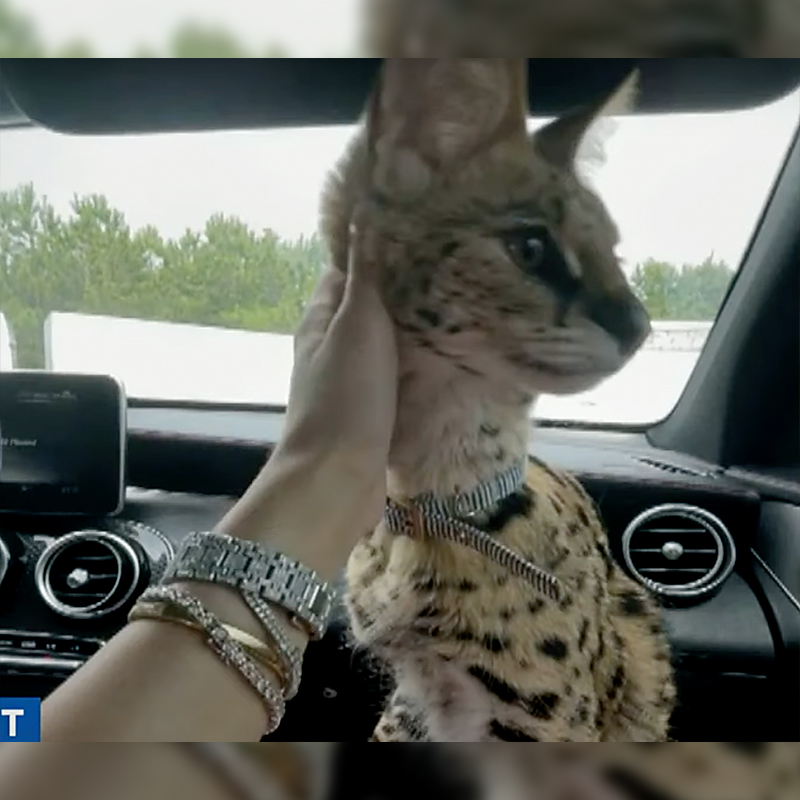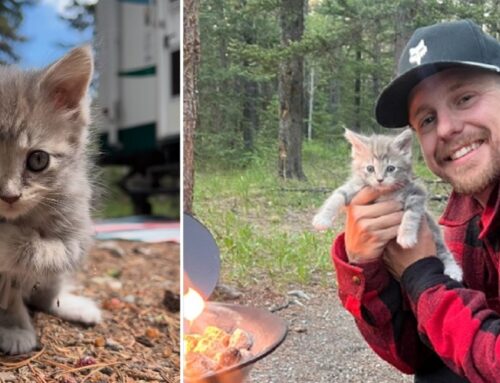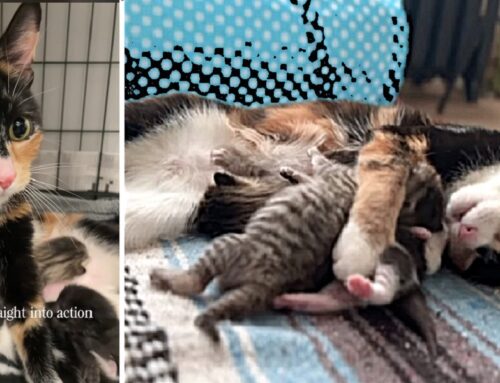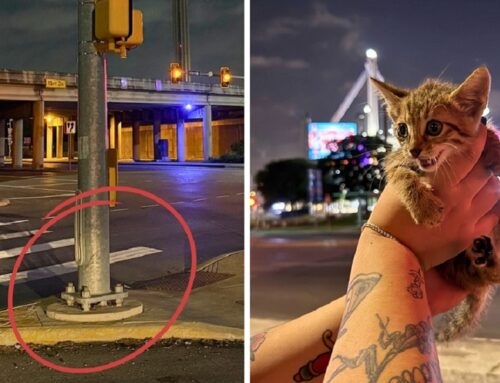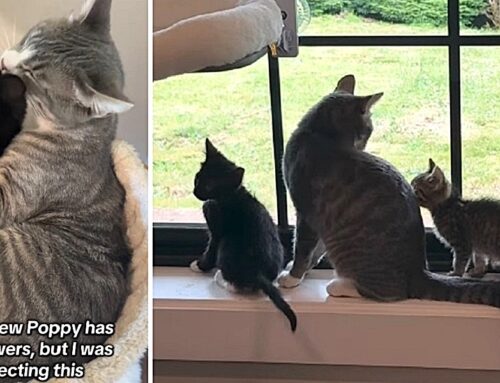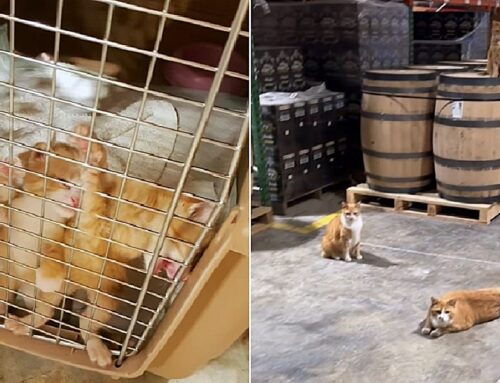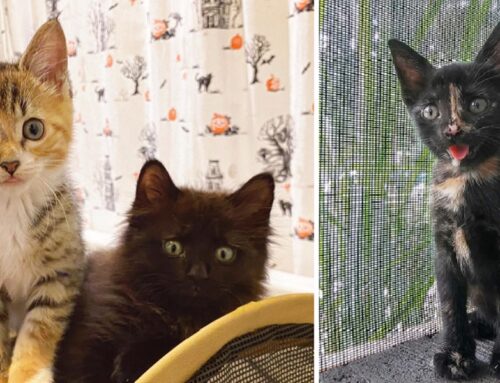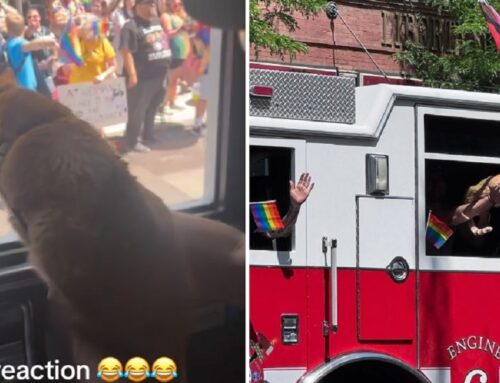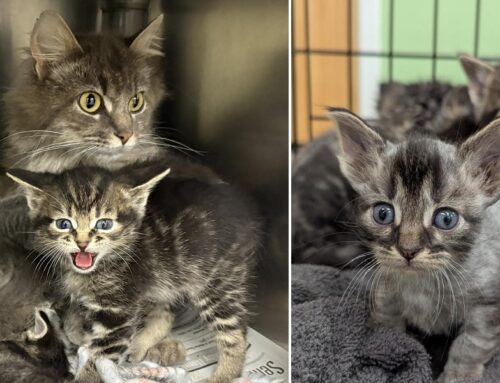Imagine waking up with a serval, a large spotted cat native to Africa, six inches from your face. Well, that’s what happened to Kristine Frank of Atlanta.
“I said, ‘That’s not a normal house cat. I don’t know what that is, but I am terrified right now,'” Frank told CNN.
On a Wednesday morning, her husband went to take their elderly dog outside and left the door open. That’s when the serval came in, jumped onto her bed and moved inches from her face.
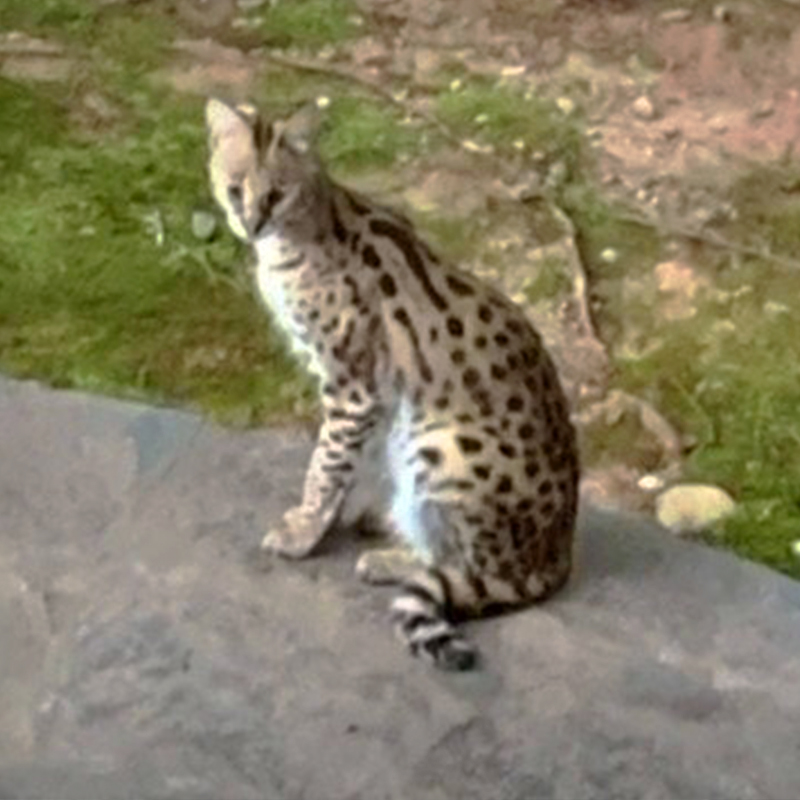
Images via YouTube
After Frank screamed, the serval ran from the bed. Then, Frank slowly moved from the room and her husband opened a door leading outside. Fortunately, the serval ran away into a nearby golf course. However, it lingered long enough for Frank’s husband to snap some pictures first.
Later, upon reflection, Frank explained how horrifying the event had been.
“Afterwards I was like, ‘Was that a bobcat?'” she thought. Or maybe it was a leopard? Was it a baby serval or a “mom?” Frank wondered.
Kristine Frank. Images via YouTube
Frank called animal control to report the incident, but they asked her to call the Department of Natural Resources (DNR), which started an investigation.
“It still kind of terrifies me because that cat is illegal and there’s a reason it’s illegal. So I really don’t know what it’s capable of doing.”
Meanwhile, the serval was on the loose in Atlanta, a scary prospect for residents over the summer. Over the next few days, officials failed to capture it after setting traps where at least three people reported seeing the cat.
Video by CBS46 Atlanta:
Nala the Serval from South Carolina
Six days later, the mystery of the Atlanta serval was over. CBS 46 reported that a woman from South Carolina, Anna Fyfe found her ‘pet’ serval named Nala.
According to the report, Fyfe and her boyfriend tried to find the cat after she escaped from a bedroom window. Fortunately, someone in the neighborhood spotted Nala again, and this time, Fyfe came to pick her up without incident. Often, wild animal escapes don’t end peacefully.
“We just walked up and grabbed her,” Fyfe told CBS 46.
As she explained, Fyfe was in Georgia temporarily visiting her boyfriend and expected to take Nala back to South Carolina after a few months.
In South Carolina, the game and fish laws didn’t specifically address servals, although other wild cats are now prohibited. (For cats owned before Jan. 1, 2018, people must register the animal with authorities).
She Believed the Serval was Harmless
According to Fyfe, she understood how terrified Frank must have been. However, she believed Nala was harmless.
“I would be terrified if I woke up to an exotic cat in my bed but she’s sweet,” Fyfe acknowledged. “Nala’s declawed. She’s harmless.”
https://twitter.com/ZacOnTV/status/1413681174183129091?s=20
It’s not clear who declawed Nala, but Fyfe claimed her family rescued the cat two years before the incident.
Although Fyfe knew keeping servals in Georgia was illegal, she said she brought Nala to Atlanta because she was “going through a rough patch in her life.”
More from CBS46 Atlanta:
Authorities Confiscate Nala
After Fyfe took Nala back home, authorities from the DNR confiscated her. A spokesman said the cat might go to a wildlife sanctuary or licensed facility, perhaps in North Carolina. In response, Fyfe wanted to return to South Carolina with Nala.
According to an AP report, “Fyfe, who raised the serval since it was a cub, wants DNR to return the animal to her as long as it is taken back to South Carolina immediately.”
However, the news suggests will have to visit Nala in a sanctuary along with the public.
“They are not letting me keep her,” she told The Atlanta Journal-Constitution. “They are taking her away to a sanctuary — I completely understand, they’re only doing their job. I’m just devastated because Nala is my baby.”
With no uniform federal law to prevent it, servals remain popular in the exotic pet trade, where they can cost thousands of dollars. Meanwhile, Savannah cats, part serval and part domestic cat, may require permits depending on state law.
In over 400 incidents over the last three decades, wildcats have escaped and either injured or killed people, according to Alicia Prygoski, senior legislative affairs manager for the Animal Legal Defense Fund.
Through the pending Big Cat Public Safety Act, a uniform federal law would protect both big cats and people from harm.
This is why they are better off in the wild, or if absolutely necessary, a sanctuary equipped to fulfill their needs as best as possible.


